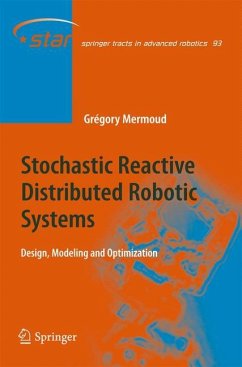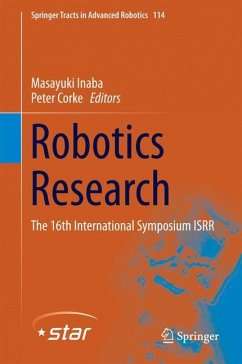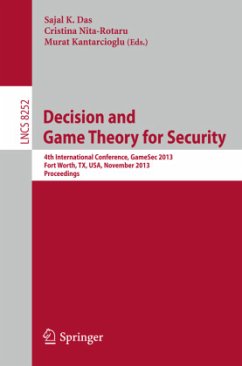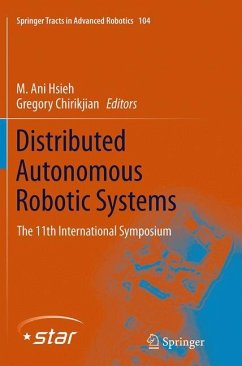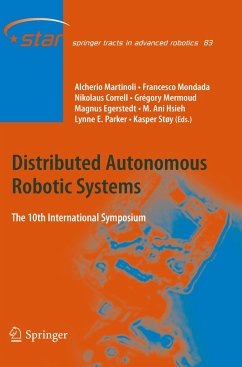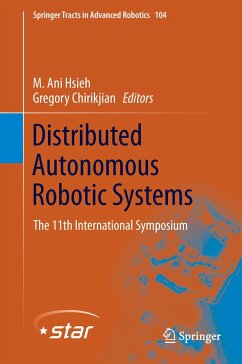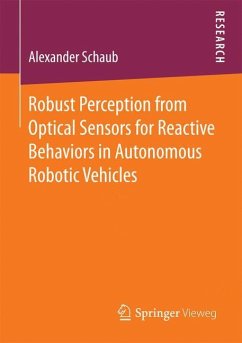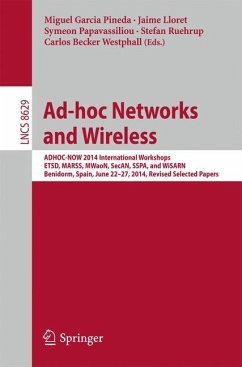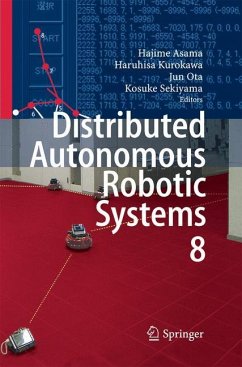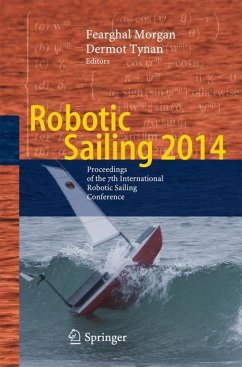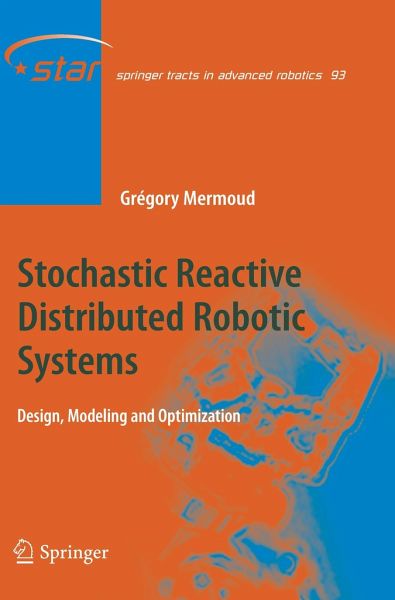
Stochastic Reactive Distributed Robotic Systems
Design, Modeling and Optimization
Versandkostenfrei!
Versandfertig in 6-10 Tagen
76,99 €
inkl. MwSt.
Weitere Ausgaben:

PAYBACK Punkte
38 °P sammeln!
This monograph presents the development of novel model-based methodologies for engineering self-organized and self-assembled systems. The work bridges the gap between statistical mechanics and control theory by tackling a number of challenges for a class of distributed systems involving a specific type of constitutive components, namely referred to as Smart Minimal Particles. The results described in the volume are expected to lead to more robust, dependable, and inexpensive distributed systems such as those endowed with complex and advanced sensing, actuation, computation, and communication c...
This monograph presents the development of novel model-based methodologies for engineering self-organized and self-assembled systems. The work bridges the gap between statistical mechanics and control theory by tackling a number of challenges for a class of distributed systems involving a specific type of constitutive components, namely referred to as Smart Minimal Particles. The results described in the volume are expected to lead to more robust, dependable, and inexpensive distributed systems such as those endowed with complex and advanced sensing, actuation, computation, and communication capabilities.




